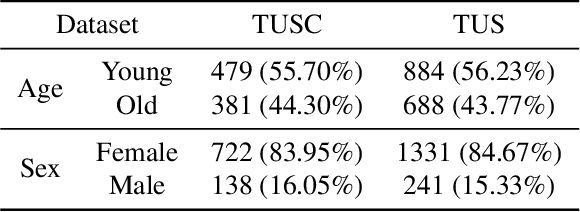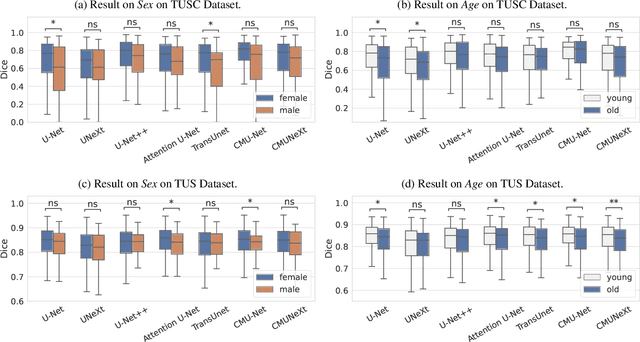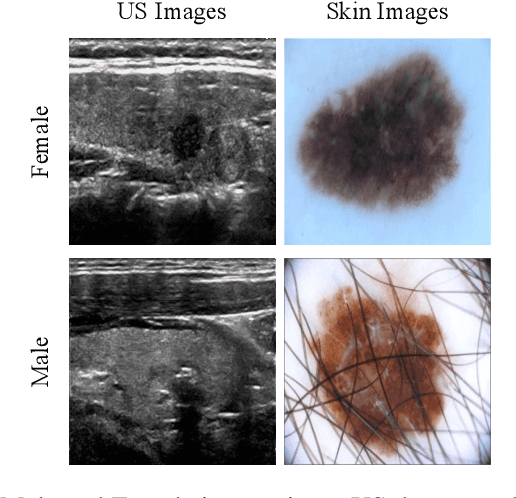Inspecting Model Fairness in Ultrasound Segmentation Tasks
Paper and Code
Dec 05, 2023



With the rapid expansion of machine learning and deep learning (DL), researchers are increasingly employing learning-based algorithms to alleviate diagnostic challenges across diverse medical tasks and applications. While advancements in diagnostic precision are notable, some researchers have identified a concerning trend: their models exhibit biased performance across subgroups characterized by different sensitive attributes. This bias not only infringes upon the rights of patients but also has the potential to lead to life-altering consequences. In this paper, we inspect a series of DL segmentation models using two ultrasound datasets, aiming to assess the presence of model unfairness in these specific tasks. Our findings reveal that even state-of-the-art DL algorithms demonstrate unfair behavior in ultrasound segmentation tasks. These results serve as a crucial warning, underscoring the necessity for careful model evaluation before their deployment in real-world scenarios. Such assessments are imperative to ensure ethical considerations and mitigate the risk of adverse impacts on patient outcomes.
 Add to Chrome
Add to Chrome Add to Firefox
Add to Firefox Add to Edge
Add to Edge